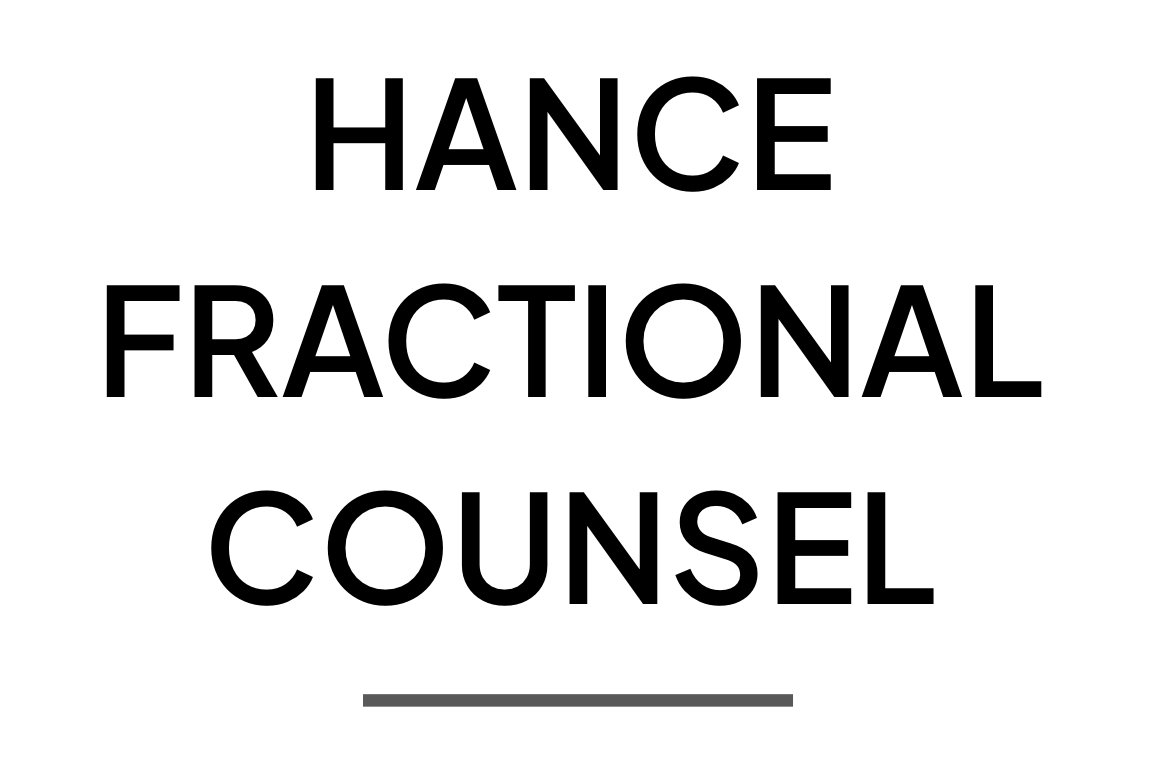Tim Hance, founder of Hance Fractional Counsel, PC, is a fractional general counsel for startups, handling matters ranging from contracts and corporate governance to debt or venture financings. Tim started his career as a business analyst at a high-growth startup, and after graduating Harvard Law School, worked as an attorney at Cooley LLP, where he helped dozens of companies at all stages—from incorporation through IPO.
After Cooley, Tim went in-house where he was the head of legal at a large public biotech company and then at a Series B-stage startup. After a successful spin-out and fundraise where he acted as general counsel for two startups at the same time, Tim saw an opportunity to start a law practice in the style of fractional CFOs or HR professionals.
Tim Hance, founderCarta is basically the standard for startups.
Hance Fractional Counsel
Tim first encountered Carta at Cooley, where he saw that Carta’s cap table management software was prevalent in the tech world. “Carta is basically the standard for startups,” he says. “For all the private companies, it’s either a spreadsheet on someone’s laptop or it’s Carta. As counsel, we would always prefer them to be on Carta.”
So when Tim heard Carta was building a pro forma tool, he knew he wanted to be an early adopter for his client’s Series Seed financing.
Pro formas you can trust, in record time
Before Carta’s Deal Pro Forma tool, creating pro forma cap tables for financings was a cumbersome and time-consuming process that could sometimes take up to ten hours, says Tim. The typical practice for lawyers is to recycle spreadsheets from past deals, input the new deal terms, and then recheck all the formulas and values.
If he received a draft pro forma from the lawyers on the other side of the deal, Tim would painstakingly check that the entire document, from the data inputs to the calculations in Excel, were correct.
“Prior to law, my job was basically creating spreadsheets all day as a business analyst. I’m very good with Excel—and I still hated dealing with the pro forma spreadsheets,” says Tim. “The thing that you learn very quickly when you’re a junior associate, once you’ve been burned, is to never trust anything that anyone sends you. If you get a pro forma cap table from someone, you have to go through every formula and check every value to make sure it works perfectly. It can be a nightmare and not a good use of the client’s money.”
Carta streamlines all of that, Tim says. “The appeal is that Carta is trusted among founders and attorneys so it’s like a neutral third party. It’s not coming from an attorney you don’t know or who may not be great at Excel—it’s a neutral Carta with a team that has vetted their own calculations and software and is pulling directly from the company’s cap table.”
Tim HanceThe appeal is that Carta is trusted among founders and attorneys.
With the Carta tool, he inputs answers into prompts provided by the tool, and Carta produces an accurate pro forma instantly.
This saves Tim “significant time” when putting together a pro forma, he says. While he still double- and triple-checks all the answers he puts into the tool, he can trust that the formulas built into it are correct.
Being able to trust the numbers on a pro forma is essential, says Tim. “The client’s putting a lot of trust in you to get things right. You just can’t be wrong about things.”
“The absolute worst thing would be to have a cap table that’s wrong when you’re in the middle of a financing and you have to pause to figure it out. If the pro forma is wrong, it always gets uncovered because it’s critical to the deal. It’s very important to make sure that the pro forma is good from the start.”
Real-time modeling
Previously, ad hoc Excel spreadsheets meant that any tweaks to the pro forma could risk breaking the model. Changing a deal variable such as the size of the employee equity pool, for example, might mean the draft pro forma crashes, and you’d have to spend time troubleshooting or starting over, says Tim.
Such flaws are a real problem during the term sheet negotiation process, when things are moving quickly and you need to easily and accurately model potential options for the deal, such as valuations, equity pool sizes, and their impact to current shareholder dilution.
“Going through the process with Carta was really nice, because with the tool, I was able to get a client on the phone, and we both pulled up the pro forma tool and played around with it,” Tim says. “We could say, ‘What happens if the employee equity pool is 10 percent instead of 11 percent?’ And then we’d just refresh the tool and the numbers came up. We were trying to do the Goldilocks analysis of getting to the exact right numbers, and we were able to do that over the phone live.”
It’s a game-changer for term sheet negotiations, says Tim. “During the term-sheet stage, you’re constantly tweaking the pro forma. This takes the headache out of that.”









